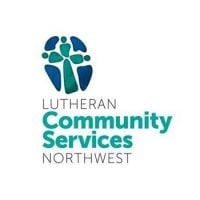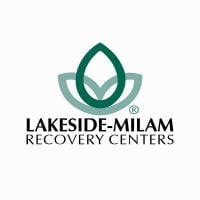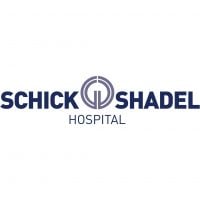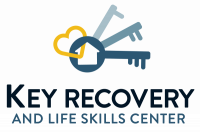Recovery Centers
Drug Rehab Center in Kent, Washington
- Opioid Addiction
- Dual Diagnosis
- Drug Addiction
- Alcoholism
Recovery Centers in Kent, Washington offers comprehensive addiction treatment services, including individual and group counseling, medication-assisted treatment, support groups, and evidence-based therapies like CBT and DBT, with a team of licensed professionals to guide individuals in achieving lasting recovery.
Multiple patients have reported Recovery Centers as permanently closed.
Research other rehabs in Kent, Washington, or get help finding an open facility.
Our experts will find you an alternative facility.
(888) 674-0062 24/7 Free, Confidential, Expert HotlineAbout Recovery Centers in Washington
Recovery Centers in Kent, Washington is a multi-service addiction treatment center that provides comprehensive, evidence-based, and quality care for individuals who suffer from substance use disorders. Their mission is to provide a safe, respectful, and caring environment that instills hope and the belief that individuals can experience meaningful and lasting recovery. Recovery Centers is dedicated to helping individuals and families identify the root causes of their substance use and develop an individualized plan to address these issues and ultimately attain a healthy lifestyle.
Recovery Centers offers a variety of treatment options such as individual and group counseling, medication-assisted treatment, support groups, and educational classes. During the recovery process, individuals are guided by a team of therapists, case managers, and counselors who provide support and guidance in order to help individuals work through their recovery goals. In addition, Recovery Centers offers evidence-based services such as Cognitive Behavioral Therapy (CBT) and Dialectical Behavioral Therapy (DBT) to help individuals overcome their addiction and lead a healthy lifestyle.
Recovery Centers is accredited through the Commission on Accreditation of Rehabilitation Facilities (CARF) and Licensed by the Washington State Department of Health. Their programs have been recognized by the American Society of Addiction Medicine (ASAM) and the National Association of Addiction Treatment Providers (NAATP). Additionally, Recovery Centers is an active member of the Washington Association of Addiction Professionals (WAAP) and the National Association of Addiction Treatment Providers (NAATP).
Genders
Ages
Modality
Additional
Conditions and Issues Treated
Opioid addiction is when someone becomes addicted to opioids. This can happen quickly due to any opioid use. Opioid withdrawal can be uncomfortable and lead the user to continue using even if they want to quit. It’s best to receive inpatient treatment for detoxification.
Even if a person doesn’t need inpatient treatment, it’s recommended to start rehabilitation or at least some kind of outpatient treatment. This is because the withdrawal symptoms from opioids can be uncomfortable and unpleasant, to the point that a person could end up using again or worse.
Detoxification should be done to break the physical addiction of opioids. This can be done with opioid replacement therapy, medication-assisted therapy, or a more traditional detoxification program. Intensive outpatient treatment is a form of addiction care that allows patients to continue living at home while undergoing treatment. This type of care is appropriate for patients who have been treated in residential treatment programs. Intensive outpatient programs include regular visits to the facility providing therapy, and patients gradually return to their routine life. IOP benefits most when patients have a supportive family member or friend to help them recover.
The first step to getting into an intensive outpatient program is to attend a detoxification facility. Detoxification facilities are designed to remove substances from the body safely. The patient will attend sessions designed to help them understand their addiction and its impact on their lives. While in an intensive outpatient program, therapy sessions are scheduled three to five times per week, with the patient attending no more than two sessions in one day.
Levels of Care Offered
This center offers a variety of custom treatment tailored to individual recovery. Currently available are Drug Rehab, Outpatient, with additional therapies available as listed below.
Outpatient treatment consists of counseling and therapy sessions. The outpatient treatment process begins with the addict’s initial detox period, lasting about ten days. Outpatient treatment is used for those who are at moderate risk for “slipping back” into the addiction. It is also used for those who are not currently experiencing any side effects from withdrawal, can handle social pressure, have a stable living environment, and have a good support system.
Therapies & Programs
Individual Therapy is a crucial component of addiction recovery. Therapists work with patients to identify the root of their addiction and figure out how to better handle the issues that led to them using drugs. Individual Therapy is one on one sessions where people meet with their therapist. Individual therapy provides a safe space for people to open up and discuss personal and sensitive topics which they may not feel comfortable discussing in a group setting.
In this type of therapy, therapists can develop specific solutions for each patient, which helps speed up their recovery process. In addiction recovery, therapy is a crucial part. It allows patients to go deep into their core issues and discover how those problems can be better handled now. Therapy can be performed in individual sessions as well as group settings. In individual therapy for addiction, the patient meets with the therapist one-on-one to focus on the underlying issues of addiction and come up with solutions to prevent future abuse.
Addiction can take a heavy toll on relationships, damage the trust and intimacy that was once there. Couples therapy at Recovery Centers helps to rebuild the trust and intimacy that has been damaged. An intimate relationship with a drug addict is not healthy for children or anyone in the family. Therapist help to rebalance family roles and create a healthier environment after rehab in Kent, WA.
Family therapy is a crucial part of drug treatment and getting sober. It is one of the most effective ways to help addicts stay on the path to long-term sobriety. One of the most important parts of family therapy is the relapse prevention plan. During treatment, therapists and doctors will often sit down with the addict and their family to develop a plan if the addict ever feels like they want to use again. This plan should involve steps the addict and family can take together to prevent them from relapsing in the future.
An addict’s family can play a vital part in helping them to avoid relapse because they can spot the warning signs and help them get back on track before it becomes too much of a problem. Family therapy is one of the most effective ways to help addicts stay on the path to long-term sobriety.
Group Therapy is employed by drug treatment centers like Recovery Centers to provide the recovering addict with a platform to talk about their feelings and experiences. It also provides for an opportunity to learn from other addicts who have successfully overcome their addiction. It is recommended that all group members be recovering addicts for this type of therapy to work.
Additional Details
Specifics, location, and helpful extra information.
Kent, Washington 98032 Phone Number(253) 854-6513 Meta DetailsUpdated November 25, 2023
Staff Verified
Recovery Centers Patient Reviews
There are no reviews yet. Be the first one to write one.
Kent, Washington Addiction Information
Washington's substance use, abuse, and addiction rates have followed the trends of the rest of the over the past years. Methamphetamine abuse is the biggest threat to Washington. Heroin-related overdoses increased by almost 450% from 2006 to 2016. 20% of all annual deaths in Washington are somehow drug and/or alcohol-related. Drugs are widely abused in Washington because they are easily trafficked in and out of the state.
Drug addiction and abuse are big problems in Kent. In 2013, there were 22,479 people in treatment for a substance abuse problem in the city. The majority of these cases were related to methamphetamine, followed by heroin and marijuana. The most commonly abused substances in Kent include alcohol, marijuana, methamphetamine, heroin, and prescription drugs. The most common types of drug treatment in Kent include inpatient and outpatient treatment programs and 12-step programs.
Treatment in Nearby Cities
- Lacey, WA (35.9 mi.)
- Grandview, WA (135.7 mi.)
- San Juan Capistrano, WA (989.1 mi.)
- Ellensburg, WA (84.2 mi.)
- Issaquah, WA (14.6 mi.)
Centers near Recovery Centers
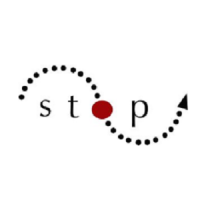
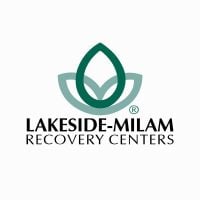

The facility name, logo and brand are the property and registered trademarks of Recovery Centers, and are being used for identification and informational purposes only. Use of these names, logos and brands shall not imply endorsement. RehabNow.org is not affiliated with or sponsored by Recovery Centers.

